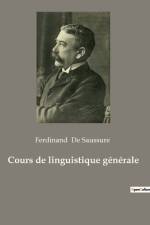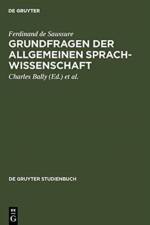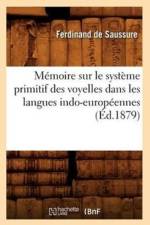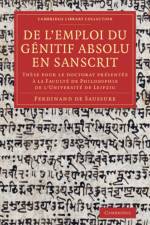av Ferdinand de Saussure
381 - 1 227
The founder of modern linguistics, Ferdinand de Saussure inaugurated semiology, structuralism, and deconstruction and made possible the work of Jacques Derrida, Roland Barthes, Michel Foucault, and Jacques Lacan, thus enabling the development of French feminism, gender studies, New Historicism, and postcolonialism. Based on Saussure's lectures, Course in General Linguistics (1916) traces the rise and fall of the historical linguistics in which Saussure was trained, the synchronic or structural linguistics with which he replaced it, and the new look of diachronic linguistics that followed this change. Most important, Saussure presents the principles of a new linguistic science that includes the invention of semiology, or the theory of the "e;signifier,"e; the "e;signified,"e; and the "e;sign"e; that they combine to produce.This is the first critical edition of Course in General Linguistics to appear in English and restores Wade Baskin's original translation of 1959, in which the terms "e;signifier"e; and "e;signified"e; are introduced into English in this precise way. Baskin renders Saussure clearly and accessibly, allowing readers to experience his shift of the theory of reference from mimesis to performance and his expansion of poetics to include all media, including the life sciences and environmentalism. An introduction situates Saussure within the history of ideas and describes the history of scholarship that made Course in General Linguistics legendary. New endnotes enlarge Saussure's contexts to include literary criticism, cultural studies, and philosophy.









